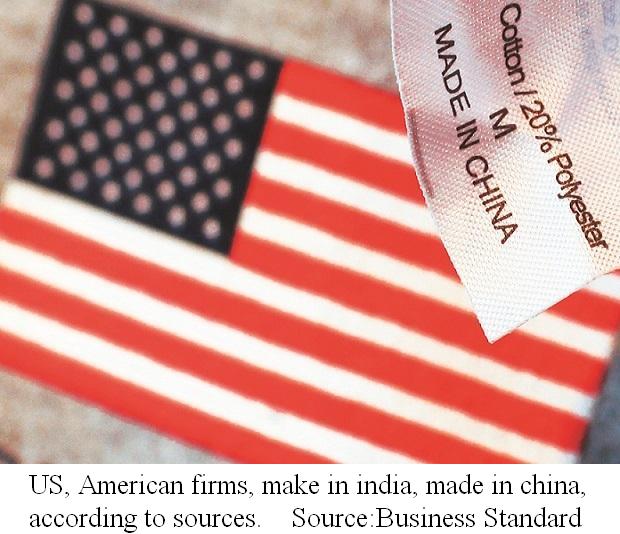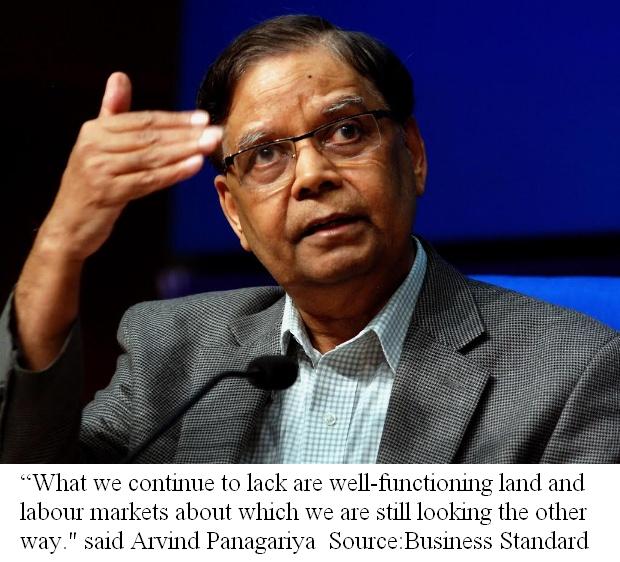|
||||||||
|
|
|
2020-05-20 ArtNo.46765
◆India looks to lure more than 1,000 US firms out of China: Covid-19 impact
 【New Delhi】India is seeking to attract US businesses, including medical devices giant Abbott Laboratories, to relocate from China as US steps up efforts to blame Beijing for its role in the coronavirus pandemic. The government in April reached out to more than 1,000 companies in the US and through overseas missions to offer incentives for manufacturers seeking to move out of China, according to Indian officials who asked not to be identified. India is prioritising medical equipment suppliers, food processing units, textiles, leather and auto parts makers among more than 550 products covered in the discussions, they said. For Prime Minister Narendra Modi, a surge in investment would help shore up an economy battered by an eight-week lockdown to control the outbreak, and help him make up ground hitting a target to grow its manufacturing sector to 25 per cent of gross domestic product by 2022 from 15 per cent. The need to create employment is now even more urgent after the pandemic left 122 million people jobless. It could also present India with a chance to finally push through long-stalled reforms on land, labour and taxes that have hindered investment for years. There are opportunities for India to try to gain a place in global supply chains, but this will require serious investments in infrastructure and governance, said Paul Staniland, an associate professor at the University of Chicago who writes about India's politics and foreign policy. ○Offer easier laws, stable policy regime to woo firms from China: Experts  【New Delhi】India is looking at attracting companies shifting from China, but experts suggest the country will have to offer liberal land and labour laws as well as guarantee the policy regime will not be changed mid-way for the move to be successful. Some said China has the capacity to retain multi-national corporations, providing India little space to woo them. Former NITI Aayog vice-chairman Arvind Panagariya, who had suggested setting up Coastal Economic Zones to attract companies from China, told Business Standard: "Why are the multinationals going to Vietnam and Bangladesh instead of India and Indonesia? Is it the 'incentives' on which we focus on or the business environment, which includes the functioning of factor markets such as land and labour?" He said the country is surely not falling short on incentives, which now include a corporation tax rate of just 17 per cent on new manufacturing. "What we continue to lack are well-functioning land and labour markets about which we are still looking the other way. Coastal Economic Zones, which I have been lately calling Autonomous Employment Zones, are a means to offering well-functioning land and labour markets and swift Customs clearances over an area of 300-500 square kilometres." He said the inspiration for CEZs has come from studying Shenzhen, which has the autonomy to enact its own land and labour laws. That allows it to respond quickly to the needs of businesses operating in the city. 【News source】 Covid-19 impact: India looks to lure more than 1,000 US firms out of China Offer easier laws, stable policy regime to woo firms from China: Experts ○One world:The aim of SEAnews Your Comments / UnsubscribeTweet to @TwitterDev SEAnews MessengerSEAnewsFacebookSEAnews eBookstoreSEAnews world circulation |
|
[Your Comments / Unsubscribe]/[您的意见/退订]/[ご意見/配信停止]
Please do not directly reply to the e-mail address which is used for delivering the newsletter. 请别用递送新闻的邮件地址而直接回信。 メールをお届けした送信専用アドレスには返信しないで下さい。 |